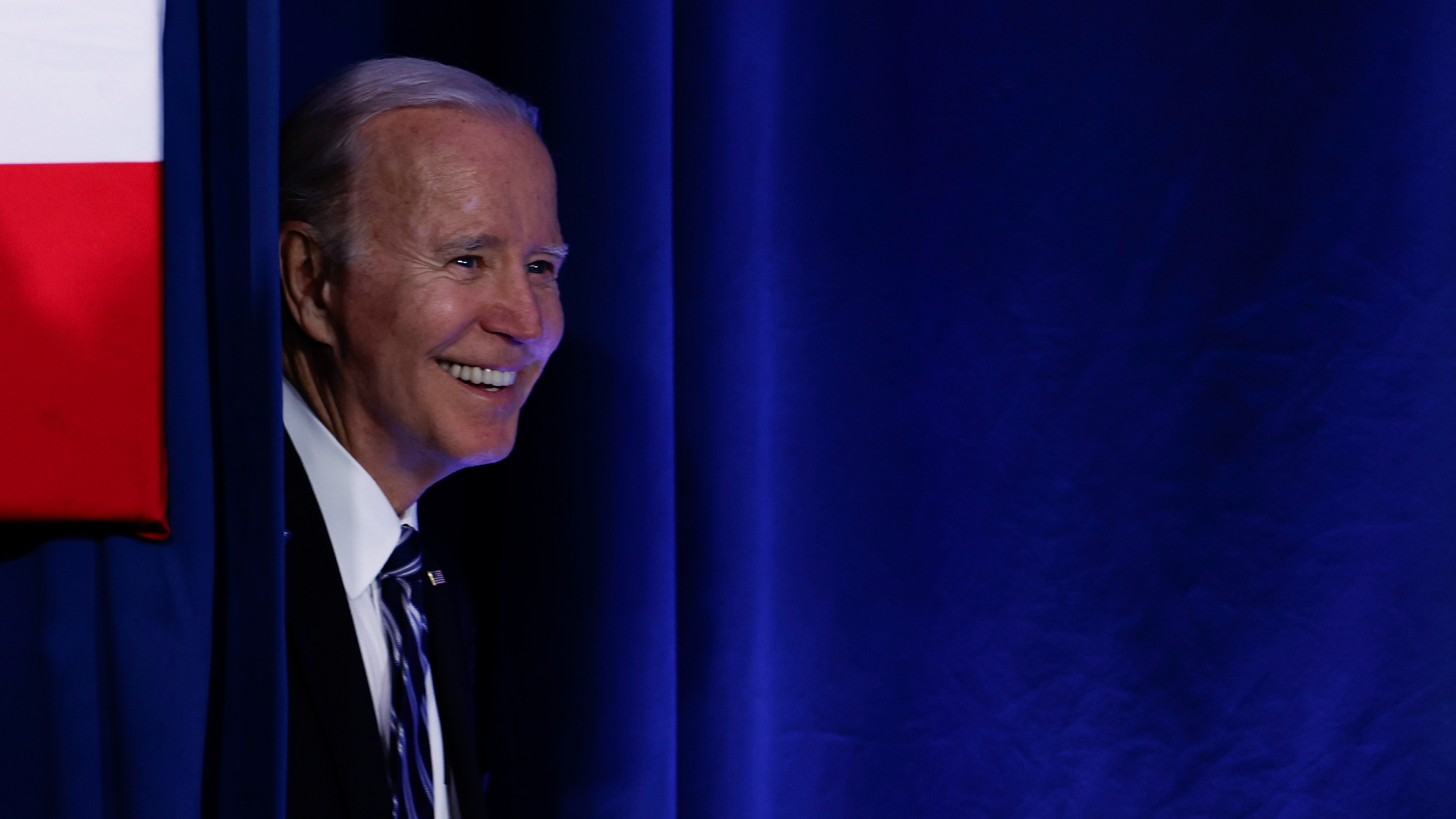Progressive DNC Member Blames Biden White House for Blocking Ban on Dark Money

Pres. Joe Biden listens to remarks by Vice President Kamala Harris at the Democratic National Committee winter meeting in Philadelphia on Feb. 3, 2023.
(Anna Moneymaker/Getty)
A progressive member of the Democratic National Committee (DNC) tells TYT that President Joe Biden is ultimately to blame for failed efforts to ban dark money from Democratic primary contests.
And there are no known plans to try again during the DNC’s fall meeting, which takes place in October, two DNC reformers tell TYT.
A bloc of progressive reformers tried and failed twice at DNC meetings – once last summer and then again in February – to get a vote on a resolution to ban dark money.
Our Revolution Board Chair Larry Cohen, a DNC superdelegate who’s also part of the DNC reformers group, told TYT that there are no plans to try again. The makeup of the resolutions committee, which rejected the two previous attempts, hasn’t changed. Because the DNC reformers have no reason to think their resolution would fare better now, Cohen said, “I’m not sure we’ll do it.”
Massive amounts of dark money, which cannot be traced back to its wealthy donors, have been used by right-wing operatives to upend the primary campaigns of progressive candidates, tipping the scales in favor of establishment Democratic candidates. Such was the case with former Rep. Andy Levin (D-MI), former Ohio state Senator Nina Turner, and Jessica Cisneros – all progressives whose campaigns were impacted by dark money. (Turner now has a show on TYT.)
“If you want to demonize, say, Andy Levin and that primary, and you dump in $11 million into dark-money media buys, you don't need a field campaign, because that's enough money to totally saturate the broader Detroit market,” said Cohen. “[I]t works. It boosts turnout. And these elections are only about turnout, and it's all part of the saga of the failed US democracy.”
Cohen says that in primary races – where voter turnout is already low – a 10% boost could literally come down to a thousand votes. In the case of Cisneros, who lost to right-leaning incumbent Rep. Henry Cuellar (D-TX), it’s enough to sway the outcome of an election. That’s exactly why Cohen and other DNC members are fighting to ban it.
But Cohen says any effort to get rid of dark money has been thwarted indirectly by Biden because of his influence over the DNC’s resolutions committee, which has twice now blocked a full DNC vote on dark money, despite the efforts of the reformer group, known as the DNC Members for Party Modernization (DMPM).
“[F]irst of all, the resolutions committee was handpicked by the White House with the DNC staff, not elected in any normal sense of the word elected. So this is a vicious circle,” said Cohen.
It’s for this reason that Cohen – and another DMPM member speaking to TYT on background – say they don’t know whether the dark-money ban will be reintroduced at the Oct. 5-7 DNC meeting, with Cohen calling it “a frustrating exercise in futility.”
When asked to comment, a member of the White House press staff declined to address Cohen’s claim that the Biden administration chose the resolution committee members, saying in an email, “For this you’d need to go to the DNC, I can’t legally speak for them.” The DNC did not immediately respond.
Biden has supported legislation to disclose dark-money donors, which ultimately failed because Republicans wouldn’t back it. But the president also benefited greatly from dark money in the 2020 presidential race, to the tune of $145 million.
And according to the campaign-finance tracking site OpenSecrets.org, a total of $1 billion of dark money went into the 2020 election cycle. Democrats benefited from more than twice the amount that boosted Republicans. But some of that Democratic dark money has flowed to fights against other, more progressive Democrats.
Dark money has been a reliable weapon against progressive candidates in House and Senate nominating contests. For that reason alone, many progressive values are stunted from coming to fruition. Cohen says that problem likely won’t be solved without focusing more on the Democratic Party’s nomination process.
“[F]or anybody who cares about the outcome, the key issues that we all love, there's not a path to get there with this government without focusing on how do candidates get nominated, and in this case for the House and Senate in the Democratic Party,” said Cohen.
The DMPM still has a couple of months to decide if they’ll reintroduce their dark money resolution. But Cohen says it would likely take “convention action” in 2028 to change the rules around dark money and how resolutions committee members are selected.
According to Cohen, the 2028 Democratic National Convention presents an “important opportunity” that is dependent on progressives being elected to lead the 57 state and territory parties. He said that it’s “most critical since the state parties can regulate their primaries, including incentives, to avoid dark money and penalties for accepting it.”
TYT Washington Correspondent Candice Cole was previously a correspondent and senior White House producer for the Black News Channel and has worked at a number of local news outlets. You can find her on Twitter @CandiceColeNews.
